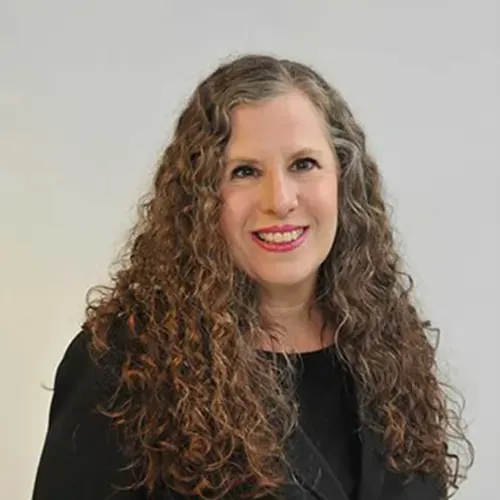

Misconceptions and discovery
I am immensely proud to be a CEO with ADHD and see it as an absolute asset. The trouble is that not only has it taken me way too long to reach this state of happiness and liberation, but I am also painfully aware that far too many neurodiverse people do not experience the workplace as I do.
Like many neurodiverse adults, I was not diagnosed as a child. I spent my entire education and the bulk of my working life, until my diagnosis at age 47, thinking a whole bevvy of things about myself that were simply untrue. I behaved in ways that were either unhelpful or downright harmful to my well-being and mental health.
I spent too much time self-deprecating, feeling stupid, and feeling like I never quite fitted in. I desperately tried to be the person I thought others wanted me to be, living in constant fear of rejection and the criticism, gossip and ridicule that my different way of thinking, views and behaviours invariably evoked.
The diagnosis offered some relief, as it helped make sense of why I thought, felt and behaved the way I did and enabled me to understand that the ADHD was one thing and I was another. However, the only solution available, medication, just didn’t work for me. It suppressed my personality and, importantly, my sense of humour, which made me quite uptight and aggressive.
So, when I decided to come off the medication, I was on my own.
Silent struggles: The cost of non-disclosure
Over the past few years, the working world for neurodiverse people has changed significantly, with plenty of resources and support available. This was not the case at the time when I was shunted out of my psychiatrist’s office onto the curb. Looking back now, what I did then seems absurd, but in the absence of any other support, I internalised it. I just accepted that I had ADHD, found lots of information and resources on how to manage my ADHD on the Internet, and soldiered on. I didn’t talk about it. I certainly didn’t disclose it. I just found my own path through tenacity and resilience. Although this worked for me on the outside, and I think I did a pretty good job of pretending to be neurotypical, it was exhausting.
When I landed at enei in 2020, I brought a plethora of tools, tips, tricks, and ways of working with me. My neurodiversity remained an internal matter, with no voice and no way of expressing to others the challenges I faced, let alone the ways they could support me. This was until one day, a colleague asked me if I had ADHD.
Finding freedom in acknowledgment and community
What followed was an even greater sense of relief than when I received the diagnosis. I found the path to where I am now, where I feel I belong and am able to be the whole human being that I am, with all of the strengths, skills, expertise, qualities and experiences I bring, along with the confidence and freedom to be vulnerable, fallible and imperfect, just like all of my fellow human beings.
When I became CEO at enei, two of the key things I set out to do were to build the inclusive culture that I’d always wanted to work in and to be the open, authentic, kind, compassionate leader I always wanted to be led by. So, it’s no surprise that the team around me also had these qualities, and we were able to work together to ensure that my ADHD was not something that I needed to manage myself, but something that was integrated into the team and our ways of working.
Bridging differences: Communication as a universal tool
What has transpired since is that the adjustments needed are pretty minimal, and really come down to communication. If I am clear and articulate about how best to communicate with me, as I can get overwhelmed when presented with numerous pieces of information at one time, then things go pretty swimmingly. I am in a psychologically safe environment, where I feel comfortable saying things like, “Would you please chop that information into smaller pieces for me?“, or when asked a compounded question, “ Thanks for asking those three questions. Would you please repeat them separately?“.
I no longer feel shame, embarrassment or humiliation when information is presented to me in a way that I don’t understand. Now, rather than sitting in meetings hoping nobody asks me a question about what they just explained, and running out after such meetings and surfing the Internet to find answers, I just ask for things to be reframed and in an instant I am happily participating. What I’ve also discovered is that asking people to provide information in a clearer and more concise way makes things better for neurotypical people as well.
I now have far more energy, as I can apply all my resources to doing the things I’m great at rather than trying to be somebody that I am not. As a leader, I feel that I’ve really come into my own. I am grounded, balanced and fully present, able to be there for the people who need me without distraction. I now embrace what I refer to as radical ownership, being courageously accountable, open and transparent with my team, taking responsibility wholeheartedly when I make mistakes, and empowering others to do the same.
I am humbled and honoured to have played my part in creating a psychologically safe environment for everyone at enei to thrive and flourish. We have a truly inclusive culture, where everyone has a sense of belonging, and people feel free to contribute to the decisions that impact their work. This has engendered the trust and loyalty needed to navigate through our modern working world, which is frequently uncertain, challenging and ambiguous. I lead a happy, harmonious and wildly productive team with minimal stress and maximum joy. Isn’t that what every CEO wants?


